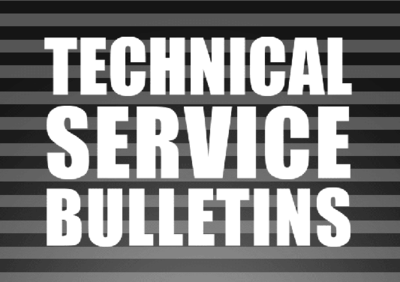Federal Government Makes Manufacturer Service Bulletins Available as Required by Law
SEE ALSO: Find Service Bulletins For Your 1962-2021 Car, Truck, RV Or Specialty Vehicle
January 21, 2020
Contact: Jason Levine, jlevine@autosafety.org, 202-328-7700
Center for Auto Safety Achieves Victory for Transparency and Consumer Safety;
Federal Government Makes Manufacturer Service Bulletins Available as Required by Law
On January 13, after an almost 4 year legal battle, the Center for Auto Safety dismissed its action against the United States Department of Transportation (DOT), brought because of a failure by DOT to fulfil its statutory obligation to make manufacturer communications available on a publicly accessible website. The Center dismissed the case after the government posted tens of thousands of manufacturer communications online. (Center for Auto Safety v. Elaine L. Chao; and United States Department of Transportation, U.S. District Court for District of Columbia, Case No. 1:16-cv-192-EGS).
The Center, founded in 1970, is an independent, non-profit consumer advocacy organization based in Washington, D.C. We are dedicated to improving vehicle safety, quality, and fuel economy for everyone on the road. In large part, improving vehicle safety demands enabling consumers access to as much information as possible about the vehicles they own.
The communications involved, alternately described by car companies and regulators as “manufacturer communications,” or “technical service bulletins,” are the main method auto companies use to send information to service departments on vehicle issues large and small. They can include warranty and policy communications and product improvement notices, and usually include repair instructions for the mechanic. Historically, these communications were hard for the public to acquire. As a result of the Center’s advocacy over the past few decades on behalf of the American consumer these bulletins are now more readily available to the public. But, before our lawsuit, DOT was not consistently posting them online
“For years car companies kept consumers in the dark about the existence of vital repairs for defects that often were available for free,” said Jason Levine, the Center’s executive director. “The Center fought for decades against secret warranties and other dirty tricks of the auto manufacturers in order to bring Technical Service Bulletins to light. Despite the law being updated in 2012 to require communications from manufacturers to their dealers to be posted online, the government failed to do so -which is why we took DOT to court.”
The Center’s lawsuit, filed in 2016, alleged that the DOT had failed to publish manufacturer communications and accompanying indices as required by law. After we filed suit, DOT announced its intent to publicly post the communications and indices. The parties subsequently agreed to a series of stays while DOT upgraded its system for receiving and posting the communications and worked through its backlog. Since we filed suit, DOT has made over 50,000 communications available online.
Levine continued: “While it is difficult to count exactly how many, we are convinced the repair instructions service bulletins provide have saved lives over the years. Moreover, there is no question that service bulletins save consumers money by allowing their vehicles to function properly for longer, often as a result of a repair that the manufacturer will pay for, but only if the consumer knows it exists. We dismissed this action because its original purpose – ensuring the communications were made public – appears to have been served. Rest assured, however, that we will not hesitate to return to court if DOT stops making these important communications available to the public.”
Although DOT has made many manufacturer communications available since the Center filed its lawsuit, it has not posted certain communications that were submitted to it without an index. As part of the resolution of the case, DOT agreed to send a message to manufacturers that had previously submitted electronic communications to remind them of their obligation to submit communications to DOT and to tell them that if they had previously submitted communications without a fully complaint index, they must expeditiously resubmit the communications with a compliant index.
In addition, DOT agreed to publish a message on its website informing the public that some communications may not be available. That message reads: “Note: Certain manufacturers may have not yet provided all communications dating back to 2012, as required by law. NHTSA will continue to update its website with additional manufacturer communications as they are received.”
To learn about the Manufacturer Communications or Technical Service Bulletins on their cars, consumers can visit: www.nhtsa.gov/recalls and look for “manufacturer communications” related to their vehicle. Alternatively, consumers can visit www.autosafety.org/vehicle-safety-check/ and search for “Service Alerts” related to their vehicle.
##
For 50 years, the Center for Auto Safety has successfully led the fight for lemon laws in every state, airbags in every vehicle, and recall repairs being made at no cost to consumers. The Center is a membership-driven organization headquartered in Washington, DC and publishes TheCarBook.com, which for 40 years has been America’s most comprehensive car buying guide. The Center now offers, exclusively for members, the monthly Safety Tune-Up Report, featuring regular alerts on safety issues relating to their vehicles. The Center is also home to the Safe Climate Campaign which fights global warming by working for big, specific measures to reduce greenhouse gas emissions. To learn more please visit www.AutoSafety.org.
The Center for Auto Safety was represented by Adina Rosenbaum of Public Citizen Litigation Group. Public Citizen is a national, nonprofit consumer advocacy organization based in Washington, D.C. For more information, please visit www.citizen.org.



